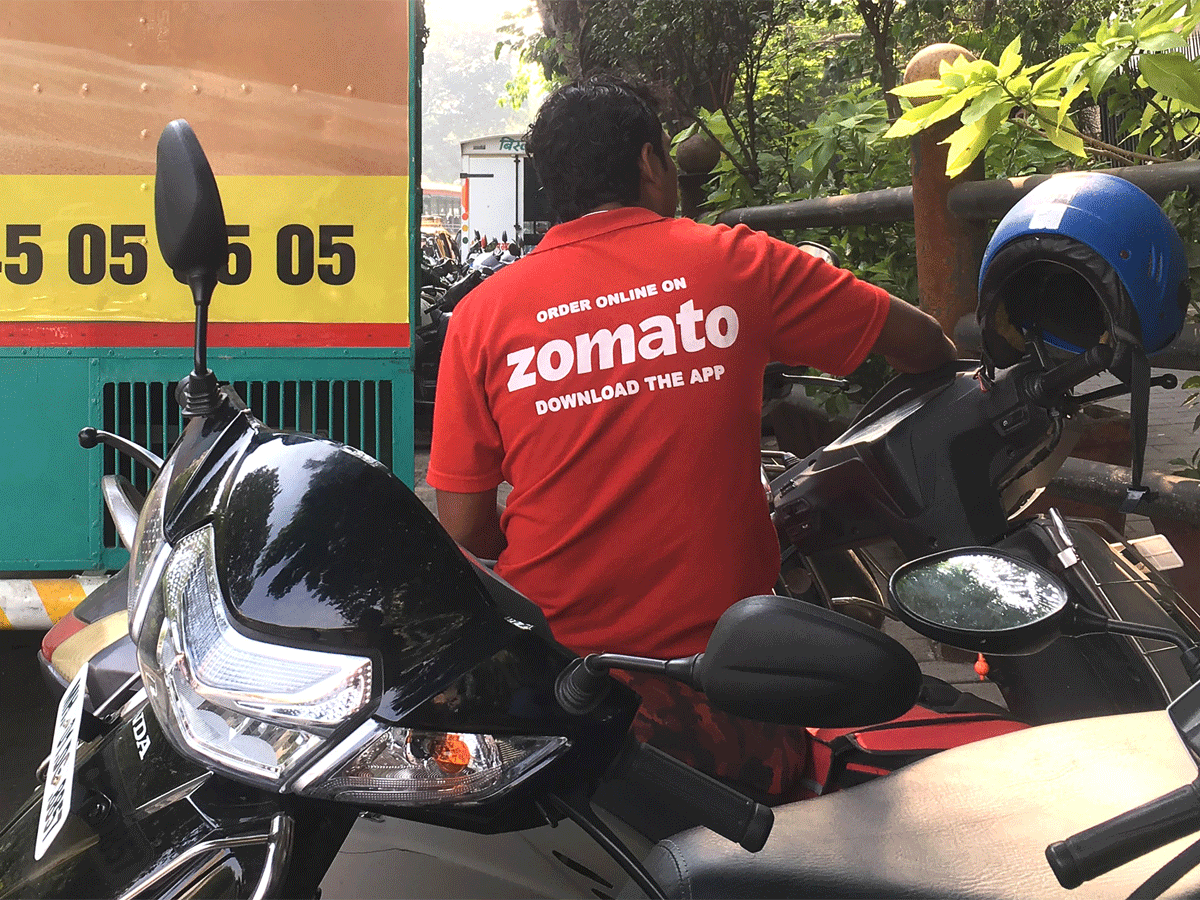 Several hundred delivery executives of Zomato hit the streets of Bengaluru on Monday to protest against the online food ordering platform’s revised pay and incentive structure, which they said would hurt earnings amid a drop in the number of orders they fulfill.
Several hundred delivery executives of Zomato hit the streets of Bengaluru on Monday to protest against the online food ordering platform’s revised pay and incentive structure, which they said would hurt earnings amid a drop in the number of orders they fulfill.Delivery executives told ET that Zomato had circulated a message on its revised incentive structure on Friday, which came into effect Monday, sparking off the protests.
Zomato did not confirm whether it had changed its incentive structure as claimed by its delivery agents.
“Reduced average delivery time (less than 30 minutes) and increased system efficiency have enabled our delivery partners to perform more deliveries in the same amount of time,” the company said, adding it was working to resume services in areas affected by the protesting agents.
“I was earning Rs 15,000 in my previous job as a marketing executive and even though I have had to sacrifice a lot being a delivery executive, I was earning double the amount,” said Kavi Arasan, a delivery executive.
For delivery agents, the bone of contention is a revision in the way Zomato calculates payment for deliveries based on distance.
For orders up to 5.5 kilometres, the company would pay a flat rate of Rs 30 and an additional Rs 10 for every km beyond that. While the company has not changed the base pay, it will now pay one rupee per additional 100 metres over the 5.5 km limit, the executives said.
The other big factor that sparked off protests is a change in its incentive structure.
While the company would earlier pay delivery agents Rs 300, Rs 600 and Rs 800 for completing 11, 16 and 20 orders, respectively, in a day, delivery executives say the new structure is nowhere as attractive.
They claim the company has reduced the payments to Rs 250 for 10 orders, Rs 400 for 15 orders, Rs 600 for 19 orders and Rs 850 for 23 orders, in a day.
Several agents said they would need to do far more deliveries each day to make the same amount of money they did earlier. This, they said, was not possible as they already worked close to 16 hours each day.
“Earlier, I used to get 20 orders while working for just 10 to 12 hours. Now, I do not even get 15 orders even if I work for 15 to 16 hours a day,” said Gangadhar (name changed), who has been working with Zomato in the Electronics City area for the last two years.
He said he has earned just Rs 1,200 a day even after working 17 hours.
The protests are similar to those staged by drivers of Uber and Ola in the recent past.
As ride hailing companies began focusing on improving their cost metrics, they slowly began reducing incentives to drivers, causing earnings to drop drastically and leading to protests.
Online food ordering, like ride hailing, in India, has been driven by hundreds of millions of dollars being pumped into companies such as Zomato and rival Swiggy, which have been offering big discounts to consumers and incentives to delivery agents to grow their services quickly.